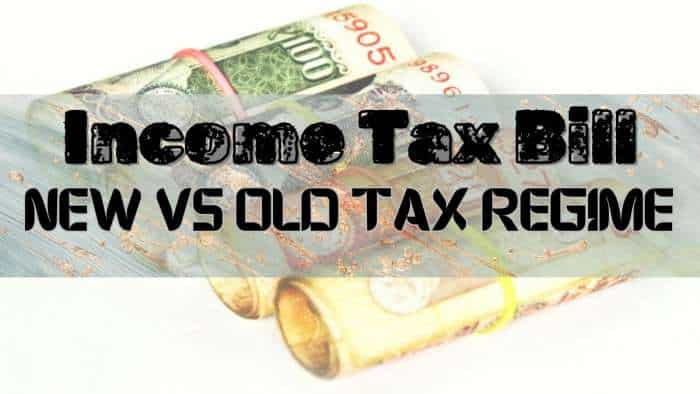NEFT vs RTGS vs IMPS: Key differences, advantages, benefits of these payment systems you must know before making money transactions
NEFT vs RTGS vs IMPS: While making money transactions, users remain confused about which mode of transferring money is best suited for them.

While making money transactions, users remain confused about which mode of transferring money is best suited for them. Basically, the confusion remains between NEFT, RTGS and IMPS. Here we list of all the details related to these three payment modes/systems and what are the key differences between these three. This will help you choose the best payment mode/system for money transactions.
NEFT
What is National Electronic Funds Transfer (NEFT) system?
National Electronic Funds Transfer (NEFT) is a nation-wide centralised payment system owned and operated by the Reserve Bank of India (RBI).
NEFT offers the following advantages for funds transfer or receipt:
-Round the clock availability on all days of the year.
-Near-real-time funds transfer to the beneficiary account and settlement in a secure manner.
-Pan-India coverage through large network of branches of all types of banks.
-Positive confirmation to the remitter by SMS / e-mail on credit to beneficiary account.
- Penal interest provision for delay in credit or return of transactions.
-No levy of charges by RBI from banks.
-No charges to savings bank account customers for online NEFT transactions.
-Besides funds transfer, NEFT system can be used for a variety of transactions including payment of credit card dues to the card issuing banks, payment of loan EMI, inward foreign exchange remittances, etc.
RTGS
What does RTGS stand for?
-The acronym 'RTGS' stands for Real Time Gross Settlement, which can be explained as a system where there is continuous and real-time settlement of fund-transfers, individually on a transaction by transaction basis (without netting). 'Real Time' means the processing of instructions at the time they are received; 'Gross Settlement' means that the settlement of funds transfer instructions occurs individually.
What are the benefits of using RTGS?
Ans. RTGS offers many advantages over the other modes of funds transfer:
It is a safe and secure system for funds transfer.
RTGS transactions / transfers have no amount cap.
The system is available on all days when most bank branches are functioning, including Saturdays.
There is real time transfer of funds to the beneficiary account.
The remitter need not use a physical cheque or a demand draft.
The beneficiary need not visit a bank branch for depositing the paper instruments.
The beneficiary need not be apprehensive about loss / theft of physical instruments or the likelihood of fraudulent encashment thereof.
Remitter can initiate the remittances from his / her home / place of work using internet banking, if his / her bank offers such service.
The transaction charges have been capped by RBI.
The transaction has legal backing.
IMPS
What is IMPS?
IMPS is an innovative real time payment service that is available round the clock. This service is offered by National Payments Corporation of India (NPCI) that empowers customers to transfer money instantly through banks and RBI authorized Prepaid Payment Instrument Issuers (PPI) across India.
What are the benefits of IMPS?
-Instant
-Available 24 x7 (functional even on holidays)
-Safe and secure, easily accessible and cost effective
-Channel Independent can be initiated from Mobile/ Internet / ATM channels
-Debit & Credit Confirmation by SMS
Get Latest Business News, Stock Market Updates and Videos; Check your tax outgo through Income Tax Calculator and save money through our Personal Finance coverage. Check Business Breaking News Live on Zee Business Twitter and Facebook. Subscribe on YouTube.
RECOMMENDED STORIES

Dearness Allowance (DA) Calculations: Is your basic monthly salary Rs 25,500, Rs 35,400, or Rs 53,100? Know how much DA will you get at different rates

Power of Compounding: How long it will take to build Rs 8 crore corpus with Rs 7,000, Rs 11,000 and Rs 16,000 monthly investments

Income Tax Calculations: What will be your tax liability if your salary is Rs 8 lakh, Rs 14 lakh, Rs 20 lakh, and Rs 26 lakh?

Monthly Pension Calculations: Is your basic pension Rs 25,000, Rs 35,000, or Rs 50,000? Know what can be your total pension as per latest DR rates

Fixed Deposit Rates for 1 Lakh Investment: Compare SBI, PNB, HDFC, ICICI, and Post Office 3-year FD returns
04:09 PM IST










 RBI Rule: New system for online money transfers to be implemented from April 1, 2025; here's all you need to know
RBI Rule: New system for online money transfers to be implemented from April 1, 2025; here's all you need to know Punjab & Sind Bank plans to raise Rs 2,000 crore via QIP likely in H2 FY25
Punjab & Sind Bank plans to raise Rs 2,000 crore via QIP likely in H2 FY25  NEFT records a high of over 4 crore single-day transactions
NEFT records a high of over 4 crore single-day transactions RBI directs all banks to keep branches open till March 31 for annual closing
RBI directs all banks to keep branches open till March 31 for annual closing Online Fund Transfer Process: Know difference between IMPS, NEFT and RTGS
Online Fund Transfer Process: Know difference between IMPS, NEFT and RTGS